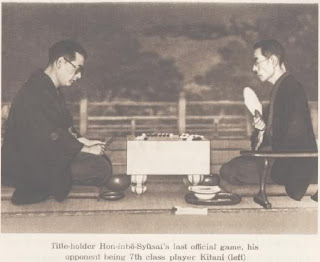10 buku pilihan saya daripada rezeki pembacaan tahun lalu. Alhamdulillah.
Love in a Headscarf. Shelina Janmohamed (Beacon Press, 2010)
Petikan daripada
entri asal: "If I have daughters who can read and old enough to begin thinking about relationships, I'd tell them to read this book."
Zeitoun. Dave Eggers (Vintage, 2010)
Petikan daripada
entri asal: "One of the concerns of the US government during Hurrincane Katrina was stopping so-called terrorists hiding within in the US from taking advantage of the chaotic situation. The US Army along with FEMA, paramilitary forces including security firm Blackwater, and other government agencies were sent into crisis areas to look for suspicious persons and activities. They ran into Abdulrahman and his friends at one of Abdulrahman's rental houses and immediately thought they in possession of some stolen goods. This was when Abdulrahman's real nightmare began."
Penawar Duka Pengubat Sengsara. Ustaz Dr Mohd Asri Zainul Abibin (Karya Bestari, 2012)
Petikan daripada
entri asal: "Penawar Duka Pengubat Sengsara mengfokuskan aspek rohani dan akidah, berbeza daripada buku-buku beliau yang lain yang ada menyentuh tentang aspek seperti kemasyarakatan, siasah dan sejarah. Puisi-puisi kerohanian Ustaz Dr Asri yang menutup dan membuka bab-bab buku ini meniupkan rasa syahdu ke dalam hati pembaca termasuklah pembaca yang berhati kematu seperti saya."
The Master of Go. Kawabata Yasunari, translated by Edward G. Seidensticker (Vintage, 1996)
Petikan daripada
entri asal: "Reading this book with just a rudimentary understanding of Go was certainly a handicap. What made me stay to the end was Kawabata's detailed account of what happened throughout the match, the people involved, and how they revealed clues about the two masters of the game. Go was merely the stage on which a human drama unfolded."
Positioning: The Battle for Your Mind: How to Be Seen and Heard in the Overcrowded Marketplace. Al Ries & Jack Trout (McGraw-Hill, 2000)
Petikan daripada
entri asal: "Positioning is not about being the first, it is more about not be overlooked by customers who are overwhelmed by the choices available in the market. Good positioning means getting through to the customers’ mind."
Travelog Wartawan Islam. Roslan Hamid (Kemilau Publika, 2011)
Petikan daripada
entri asal: "Pengalaman peribadi tuan Roslan Hamid seperti menziarahi makam Imam Bukhari dan masyarakat Islam di Uzbekistan, keengganan seorang imam masjid untuk ditemuramah kerana rasa tidak yakinnya terhahap ketelusan akhbar, serta kesibukan yang menelan setiap peluang untuk beribadat atau masa untuk bersama-sama keluarga; mendorong beliau untuk mengucapkan selamat tinggal kepada dunia kewartawanan pada tahun 1998, ketika berada di meja Pengarang Luar Negara."
Growing Up in Tregganu. Awang Goneng (Monsoon Books, 2007)
Petikan daripada
entri asal: "Growing Up in Trengganu is the kind of book I could never write, primarily because I never grew up long enough in a place to become acquainted with it, to have the kind of connection that Awang Goneng has with Trengganu, place he says no longer exist. I can't argue with him there."
Secangkir Teh Pengubat Letih. Ustaz Hasrizal Abdul Jamil (Galeri Ilmu, 2010)
Petikan daripada
entri asal: "Turki juga saksi terkuburnya khilafah Uthamaniyyah, institusi pemerintahan Islam yang pernah menjadi tunggak umat Islam sedunia. Ustaz Hasrizal mendedikasikan satu bab khas mengenai tragedi ini. Jika ditinjau lebih mendalam, kita sebagai umat Islam umpama pelanduk yang adakalanya terlupa jerat, sedangkan jerat tidak pernah melupakan pelanduk."
40 Hadis Palsu Popular. Abdul Razak Muthalib (PTS Islamika, 2011)
Petikan daripada
entri asal: "Jangan kerana niat ingin bertazkirah, kita terheret ke neraka. Semoga kita dilindungi Allah daripada kesilapan ini."
Mudahnya Menjemput Rezeki. Fathuri Salehuddin (Galeri Ilmu, 2012)
Saya belum sempat menulis apa-apa tentang buku ini. Saya membelinya di Pesta Buku Antarabangsa KL tahun lepas dan sempat bersua dengan pengarangnya. Beliau seorang yang mempunyai aura yang begitu positif. Kami sempat berbual sebentar sebelum beliau meurunkan autograf pada naskhah saya. Secara mudahnya :-) buku ini bukan mengenai mencari rezeki, tetapi tentang menjemput rezeki. Apa bezanya? Menjemput rezeki ialah tentang membuat amalan-amalan yang menarik rezeki kepada kita. Gaya penulisan buku ini sangat santai dan nyaman hinggakan saya tidak sedar yang saya menghabiskan dalam masa yang agak singkat. Fahami apakah sebenarnya rezeki dan apa yang patut kita lakukan untuk memandunya masuk ke dalam hidup kita. Turut termuat adalah beberapa kisah benar tentang penjemput rezeki. Pesan pengarang, cubalah pesanan yang dititip dan lihatlah sendiri perubahan.
Begitulah, 10 buah buku pilihan. Jemput baca.























